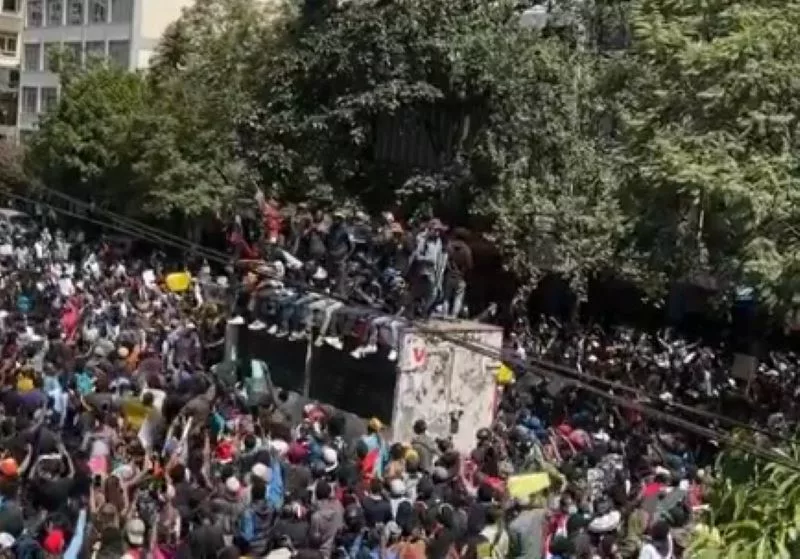As Kenya is witnessing violent protests over proposed tax hikes, the Indian Embassy in the African country has advised its citizens to adhere to utmost caution and restrict any non-essential movement.

In a statement posted on X, the Indian Embassy said: “In view of the prevailing tense situation, all Indians in Kenya are advised to exercise utmost caution, restrict non-essential movement and avoid the areas affected by the protests and violence till the situation clears up.”
“Please follow local news and Mission’s website and social media handles for updates,” the statement said.
Police shot dead at least five people in Kenya and a part of the country’s parliament was gutted amid escalating protest over the new tax regime announced by the government.
The ongoing violence has reportedly left 150 people injured.
According to reports, an angry mob broke through the police lines to reach the parliament in Nairobi and set part of it on fire.
In his address on Tuesday, President William Ruto was quoted as saying by BBC that all means would be deployed to “thwart any attempts by dangerous criminals to undermine the security and stability of our country”.
He even deployed the army to quell the ongoing protest.
Protests against the unpopular finance bill have been taking place for the past couple of days but they escalated on Tuesday, after MPs passed an amended bill.
“There are some things that are hard to understand, like how can you impose 16% tax on bread? How can you tax sanitary pads?” 24-year-old Derrick Mwathu told the BBC, referring to some of the proposals contained in the original bill.


